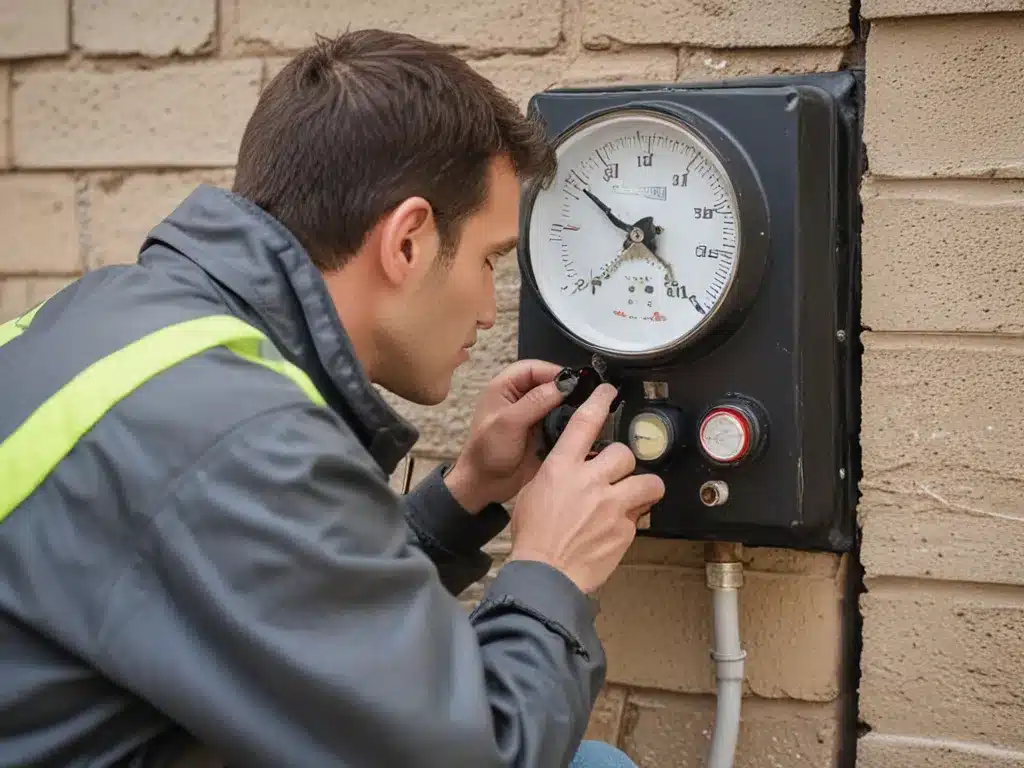Gas leaks can be extremely dangerous, leading to poisoning, explosions, and fires. As a homeowner, it is critical that I understand how to detect, diagnose, and repair gas leaks safely. This article provides a comprehensive guide on identifying, locating, and fixing gas leaks in the home.
Detecting Gas Leaks
Detecting a gas leak quickly is the most important step in preventing disasters. There are a few common signs that may indicate the presence of a leak:
Smell
Natural gas is odorless on its own, so utility companies add a sulfur-like rotten egg smell to help detect leaks. If I smell this odor inside or around the home, it likely indicates a gas leak. The intensity of the smell typically indicates how large the leak is. A faint whiff may signal a small leak, while an overpowering stench suggests a major leak.
Hissing Sound
Gas escaping from pipes makes a hissing or roaring noise. I may hear this near gas appliances like the furnace, water heater, or stove. It is louder with larger leaks. If I hear a hissing without an appliance running, it definitely signifies a leak.
Visual Signs
Gas leaks may cause physical damage or abnormalities:
-
Bubbles in standing water, wet areas, or on the surface of plumbing fixtures can be caused by gas escaping underground and entering water.
-
Dirt or debris blowing from a hole or crack in gas piping.
-
Dead or dying vegetation in one area of the yard. Underground gas leaks can damage plant roots.
-
Flames if the leak has ignited. Major leaks may combust.
High Gas Bills
A spike in gas bills without any lifestyle change may indicate a leak. The gas meter can confirm if a leak exists. I should monitor it when appliances are off. Any movement indicates a leak.
Gas Detector
Specialty gas detectors can identify hard-to-find leaks missed by other methods. These provide the most definitive gas leak diagnosis. I may be able to borrow or rent one from my gas company. If I suspect a leak but cannot confirm it through other means, using a gas detector can provide peace of mind.
Locating Gas Leaks
Once I suspect a leak, systematically searching the home can help pinpoint its origin:
-
Start with the appliances most likely to leak like the furnace, water heater, stove, and fireplace. Turn them off if possible.
-
Trace all gas lines and associated components like valves, fittings, and connectors. Leaks often occur at joints. Use a soapy water solution to check – bubbles will form where gas escapes.
-
Check areas underground where pipes run. A below-ground leak may kill vegetation or seep gas into basements.
-
Inspect the gas meter and supply pipes. Look for damage. If the meter dial is moving rapidly with appliances off, it confirms a leak.
-
Concentrate on low-lying spaces like basements where gas naturally settles. The smell will be strongest near the source.
-
Mark any suspicious areas with painter’s tape so the leak can be readily accessed later.
If I am unable to find the leak source, I should call the gas company or a plumber immediately. Professionals have specialized equipment to detect minute leaks. Continuing to search yourself in a large home with complex gas piping risks missing the leak source and allowing dangerous gas buildup.
Repairing Gas Leaks
Minor Leaks
Small leaks in accessible areas can often be repaired by the homeowner:
-
Turn off the gas supply at the meter or appliance to stop the leak.
-
Clean and dry the area thoroughly.
-
Apply leak sealant made for gas pipes. This hardens to seal small holes and cracks.
-
Tighten joints that are loose. Connectors and valves may just need tightened to stop minor leaks.
If a DIY repair does not stop the leak, I must call a professional. Attempting repairs without training risks making the leak worse.
Major Leaks
For sizable leaks or any leaks I am uncomfortable handling, I should immediately turn off the gas and evacuate the home. Call the gas company from outside – they will send a service team trained in safely repairing major leaks.
Under no circumstances should I try to repair a major leak myself. The risks include explosion, fire, carbon monoxide poisoning, and asphyxiation. Leave repairs to qualified professionals able to address the situation appropriately.
After a Leak is Repaired
Once a gas leak is fixed, I should take these steps before resuming normal use:
-
Air out the home thoroughly – gas can linger for awhile after a leak.
-
Get appliances inspected before turning them back on. Damaged components may need replacement.
-
Install a gas detector to warn of any future leaks.
-
Schedule professional annual inspections to catch any leaks proactively.
With vigilance and quick response, I can keep my family safe and avoid disasters when gas leaks occur. Knowing how to identify and handle leaks properly makes a life-threatening situation manageable.







